Deborah Clark Vance's Blog, page 5
October 31, 2020
Is Order Stable in the Great Chain of Being?
After the last of our four dogs passed away some years ago, we decided to share our lives with animals that didn’t require so much maintenance. Now my laptop sits on our dining room table from where I can see our patio where we tend to our “outdoor pets”, mainly birds, including wrens, finches, robins, cardinals, blue jays, nuthatches, thrushes, hummingbirds, mourning doves, starlings, Carolina chickadees, black capped chickadees, junkos, song sparrows, chirping sparrows, pileated woodpeckers and downy woodpeckers. From the woods just beyond, we also attract squirrels, possums, raccoons, stray cats and chipmunks (which are the only ones that terrify me since the time one got into the house and ran around chewing the woodwork for a couple of days). Our pets build nests along the edge of the woods, generally taking care of themselves, though once I rescued a fallen baby robin.
We’ve had much time to observe habits of different species and the pecking order they’ve established. Mourning doves are the sweetest, slowest, most ungainly and most polite, quietly feeding off the ground and taking baths. No one bothers to peck at them since they don’t seem to question their lowest rank.
As for who’s at the top, we took for granted that no one messes with the downy woodpecker that can aim its beak and move its head like a pneumatic drill. But in the past few days, the sparrows have gone after the woodpecker and the woodpecker defers and patiently waits.
This brought to mind high school English where, while studying Shakespeare, we learned about the Elizabethan notion of a “great chain of being”, a pecking order supposedly of a spiritual hierarchy topped by God, angels and kings. Darwin applied the scientific interpretation by proclaiming survival of the fittest among species. I wouldn’t go so far as to say a downy woodpecker is spiritually superior to a sparrow (I suspect mourning doves are the most spiritually attuned), but it definitely has a head that serves as a more powerful weapon than that of a sparrow.
In the U.S. we’re reminded every day that whatever order and hierarchy is supposed to exist has been bulldozed into a swamp. We’re not just in a pandemic but also hurtling toward election day where voters will decide whether we slide further into totalitarianism or climb back onto a path of democracy.
Maybe the answer to the woodpecker vs. sparrow conflict is in the fact that the sparrows come to the feeder in large numbers, while only one woodpecker visits at a time – and the male even pecks at his mate, which makes him not only a bully but an abusive spouse. Does this ring a bell?
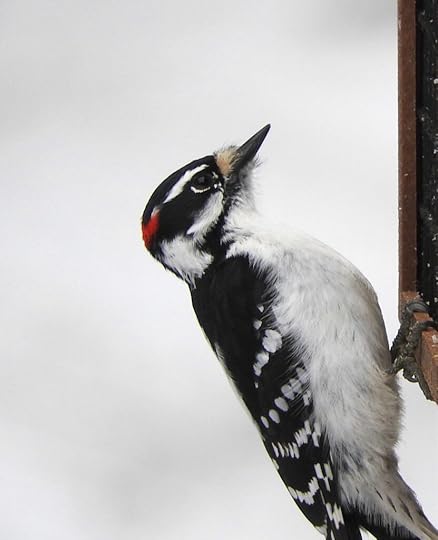
October 11, 2020
What’s Paradoxical about Shark Squalene?
By all accounts Covid-19 was transferred to humans from an animal low on the food chain, say, a bat or a pangolin. When there’s a decline in populations of top predators, including sharks, in any ecosystem, populations at the lower end of a food chain — like rats and mice, bats and pangolins – increase, causing ecosystems to collapse.
Another contributing factor in Covid transmission is the destruction of animal habitats, displacing animals by encroaching on their habitat or destroying it, as with deforestation., bringing animals and humans into closer contact than either side is comfortable with. As we’re all living so much closer together, humans are catching more zoonotic – animal to human – diseases: SARS, MERS, HIV, Ebola and now Covid.
The most promising Covid vaccine being tested contains squalene, produced by everyone’s sebaceous glands, and in this case derived from shark liver. Billions of people potentially clamoring for this vaccine bodes ill for sharks as well as for ocean ecosystems. Though we don’t need to worry about scallops and minnows moving next door to us, where sharks are overfished in an area, the ray populations increase and prey on and decimate the scallop population, hurting the ecosystem as well as the economy.
So, the paradox is that while we can cure humans by killing sharks, we’ll simultaneously damage large parts of the oceans’ ecosystems, leading to the type of situation that brought us Covid. Maybe the fish we eat will carry disease, or maybe the water itself.
What can we do about this? If squalene works, we can advocate for new trials with substitute squalene. Meanwhile we can insist on legal limits on development and sprawl that’s eating up farmland and support legislation that protects wetlands, forests, and all the waterways including oceans.
The collective will of Earth’s minerals, plants and animals seems to be that humans have done enough screwing up and they’re fed up with us. We need to pay attention, hear the message and help them out.
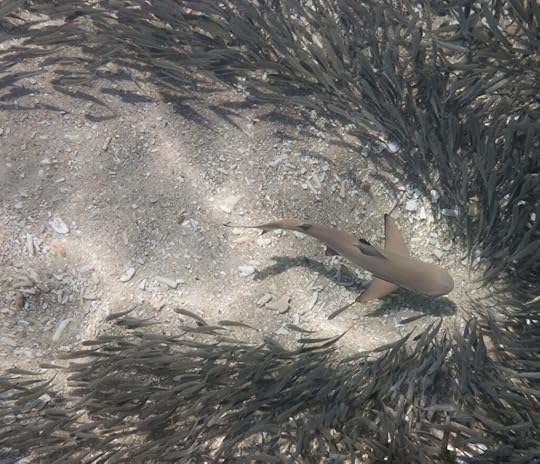
October 3, 2020
How Can We Find Trustworthy News?
In this period of Covid and misinformation about it and the US elections, my friends wonder how they can find news they can trust. Here are some musings..
First, the First Amendment wasn’t created to allow people to use 4-letter words on TV but because citizens need good information in order to self-govern. So having quality news in large part requires citizen demand.
Next, good news needs good journalists. Back in the day when newspapers were delivered and the three TV networks all broadcast evening news, I watched Huntley-Brinkley and Walter Cronkite with my folks and started reading the newspaper when I was in grade school. I first suspected news coverage was flawed when Cronkite, “the most trusted man in America”, visited Vietnam and concluded that the war wasn’t winnable, an assessment that was considered the reason LBJ didn’t run for another term. I was then in high school, my male classmates would soon to be eligible for the draft and, after all Cronkite’s years of pro-war coverage, I saw this as a betrayal.
A few years later I moved to Europe and saw how news about Nixon’s Watergate scandal and the US engagement in Vietnam looked much different. Though it makes sense that an in-group privileges its own perspectives, I saw how such privileging encourages a bias that prevents one from seeing the truth. This was an important shift in my ability to look objectively at my homeland.
Commercial business interests have long dominated US reporting, but as Vietnam wound down, the three major US networks started regarding TV news more as a money-maker than an obligation and used increasingly sophisticated tools to micro-measure audience attention. During the next few decades, media ownership concentrated in fewer and fewer hands, until by the late ’90s only six conglomerates worldwide owned all major media production and distribution. Jeffrey Cohen of FAIR once remarked that because news was never a big money-maker, for such corporations it was seen as a nuisance and treated as an afterthought. In short, the law that says to have a license, a broadcaster must serve the public interest became interpreted as to serve what the public is interested in, rather than what serves our best interest.
Over time I learned to find journalists who seemed sincerely interested in pursuing truth, like Woodward and Bernstein did in their investigation into Nixon’s break-in of the Democratic Party’s national headquarters. Others stand out too. Robert Parry who investigated the CIA’s role in the selling of crack cocaine to raise money to buy arms for the Contra rebels in Nicaragua; Gary Webb whose pursuit of truth around aspects of that same story cost him his life; Greg Palast who broke the story of voter cleansing in Florida during the 2000 election that ABC wouldn’t broadcast (but the BBC would and Palast is still covering election suppressing); Peter Arnett who was fired by NBC for speaking his truth about the Iraq war on the wrong venue. FOX news fired Jane Akre and Steve Wilson over their story on bovine growth hormone. These journalists epitomize the noblest qualities of their profession.
Unfortunately, such qualities were in short supply during the 2015-2016 presidential primary season when news outlets went after the outrageous antics of the TV reality show star who was running for president. But since then, accepting responsibility for their role in unwittingly supporting a candidate for all the wrong reasons, journalists have moved away from the misguided “two-side-ism” coverage to find and present the truth.
In sum, in a system where news is commercially funded, it will contain commercial qualities. But as citizens demand more regard for factual information, more and more outlets are supplying it. Absorbing it, though, requires being able to look critically at our own culture and understand our cultural bias. So now, in order to value truth from journalists, we’re going to have to be able to handle it.

September 25, 2020
Can You Live Without a Fridge?
Rescuing food from the dead refrigerator sent me into a reverie. At age 19, I went to live in Italy where I encountered startling attitudes about appliances. The first surprise was the hole-in-the -ground Turkish toilet common in cafes, accompanied by a nail in the wall holding pages from Paperino and Topolino (Donald Duck and Mickey Mouse) for toilet paper. The surprise element was that when you pulled a chain, flushing water quickly soaked your feet if your reflexes were too slow.
And I grew used to seeing mini-fridges. Back then, troops of housewives marched to the market every morning, each with a menu in mind and an itinerary, braced to compete for the best selections at each vendor. Since this exercise was repeated every day, there was little need to store provisions or leftovers. Scant leftovers from midday pranzo would sit on the counter until evening. Eggs and dairy stayed there forever.
People’s gut biomes probably grew hardy this way.
This was good practice for when I later lived off-grid for a year or so. In the woods, we had a cooler and every few days would hitch to the store for a bag of ice for storing perishables that wouldn’t survive 115-degree temps or nighttime raids from feral cats, bears or whatever else found its way.
I still don’t keep much in the fridge and I’ve always thought, a broken fridge? Piece of cake — for a while, at least. We managed to find one that fits the designated space and are happy to know that, despite Covid complications, it should be delivered before Thanksgiving.
Or not.

September 15, 2020
Do You Know How Fortunate You Are?
My book, SLYVIE DENIED, is set in the 1970s when vast tracts of land across the US were off the grid, with few or no electric or telephone wires and no plumbing. My main characters, Sylvie and Enzo, find themselves living off the grid in the Sierra Nevada foothills in California, an area that attracted young people from cities, inspired by the back-to-the-land movement. A visitor from Italy tells Sylvie and Enzo that no one in Europe had lived in such primitive conditions for five hundred years.
Interesting factoid: Many off-grid dwellers were Vietnam War vets, known as “trip-wire” vets, who lived primitively, trapping and hunting and sleeping in caves and hollowed-out tree stumps and avoiding human contact. Their condition would later be termed PTSD.
Off-grid etiquette demanded not to ask where you’d been or why you were there and to presume it was for the natural beauty and peace and freedom from the mainstream rat race.
Although it’s not the aspiration of most people to live in less than comfortable conditions, it’s worth remembering that a recent calculation found 1.6 million living without indoor plumbing in the US (many of them on Reservations). Worldwide, that number is 2 billion.
So, during this year of the pandemic, sheltering in place, western wildfires creating the worst air pollution ever, the senseless beating of protestors and killing of innocent people of color, be thankful if you still have indoor plumbing. Besides, living in the wild does have its charms.

September 3, 2020
Are You on the Side of Nature?
As a kid in my suburban hometown outside Chicago, I remember walking along the sidewalk and starting to notice what came to be called “edging.” Maybe once every four or so blocks I’d see a man (never a woman) who was that fussy – typically cranky“get off my lawn” kind of men. Each pushed down hard on a long wood handle attached to a toothed roller, making sure the sharp teeth trimmed any grass that dared creep onto the pavement. Though undeniably neat, such properties felt more forbidding than welcoming and I’d hurry past with my eyes trained to the ground.
Now I live in one of the greenest US cities – one with a forest, five regional and seventy neighborhood parks, thirty-four nature preserves and a green master plan. But even here, peer pressure requires – no, demands! — edging. The lawn addiction has evolved from a fetish to a serious national obsession.
On a walk I once met a homeowner in his thirties who was busily sprinkling chemical fertilizer on his grass. He muttered something about the burden of mowing the lawn. I pointed out that if he didn’t fertilize it, he wouldn’t have to mow so often, a comment he greeted with a befuddled look.
I tend a pollinator friendly garden among neighbors who hire a certain lawn company whose owner boasts of his training was in chemical applications. His website says nothing about horticulture. This chemical expert also prefers loud gas-powered tools to mold every shrub into a meatball shape, the national gas-station garden aesthetic, and to maintain lawns of turf non-indigenous turf grass, having excised the native violets, clover and plantains.
I started my lawn-bashing campaign in earnest in the mid 1980s, to meager effect. But now we’re in crisis mode and need to finally agree at to take care of the natural world as much as or more than our own perceived own status. The former, after all, will last longer.
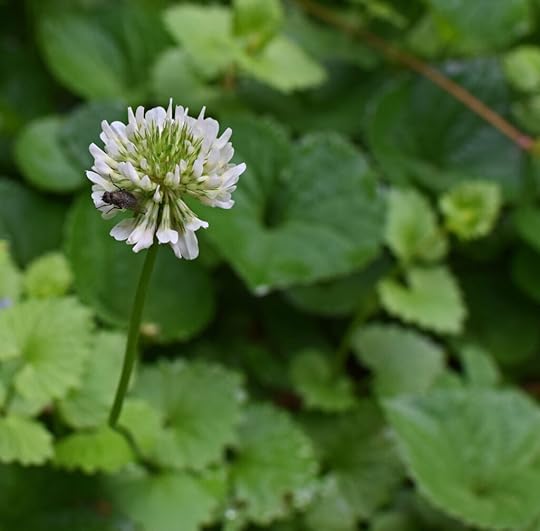
August 28, 2020
What Are the Most Memorable Summer Sounds?
As fall approaches, I’m thinking of summer sounds I will and won’t miss. The latter group is easy to list: gas and electric powered lawn tools – mowers and edgers. (Unfortunately leaf blowers will be with us a few more months. Hey, we need to have a serious conversation about the lawn fetish one of these days.)
Not being a cicada myself, I won’t get into what these male insects are saying to entice their prospective mates. But for me their love call evokes summer memories more than other sounds. Their voices (or whatever they’re called) can be as loud as a power saw, and during periodical swarms they’re as loud as a thousand lawnmowers and drive me to wear ear protection. Still they deliver me directly to long lazy summer afternoons of my childhood. And though I’d expect a more melodious love call from my own true love, I find the cicada calls charming and will miss them.
Their night-time counterpart are the crickets with their chirp. Although Sylvie sleeping in a tent gets with cricket chirps, but for me when they’re outside an open bedroom window at night, I find them reassuring. Maybe because I can close the window.

August 13, 2020
Is There a Reason to Write Letters Anymore?
To send card in the mail?
If not, this isn’t the time to start jamming up the US mail, so please wait until after that gets sorted out.
Maybe I should say are you a corresponder?
When I started emailing my folks rather than sending mail, my dad called to ask me to stop it because email was using up too much paper. I finally got out of him that he printed out every single one and its entire chain. Plus he filed them all. and I found them when he passed away.
I include letter writing in “Sylvie Denied” since it was such a part of life back then. During a recent move I sorted through boxes of old letters and cards, some from people I don’t even remember, including a guy who said he loved me. To him I quote George Sand: “Unrequited love differs from mutual love, just like delusion differs from the truth.”
Now we chronicle our lives in brief electronic clips, believing the electronic storage systems will never fail. Texting, tweeting, online chats and Facebook messaging are all fleeing and usually brief though plentiful, often hastily written. Maybe people don’t want to keep track of what was said before, what cherished moments between them, what witty remarks, since we’re all now so accessible to each other .
Because of distance between people, the time it took for mail to travel and the high costs of long-distance calling, people used to save letters to re-read, ponder and maybe cherish. Now we can be up to the minute with each other’s minutia to the point where many are tired of it all and signing off.
They should write letters.
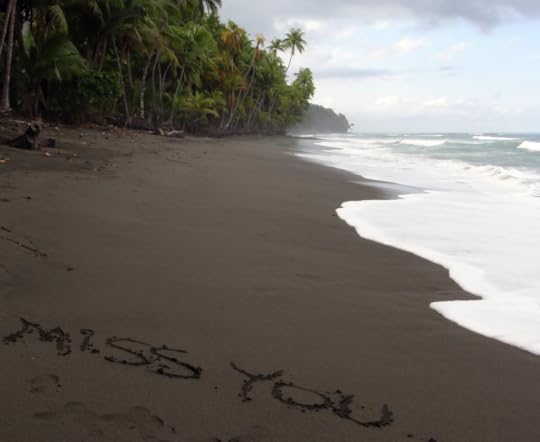
August 8, 2020
15 Reasons You Should Compost
When I read Rodale’s Organic Gardening in my 20s, it blew my mind to see photos of gardeners standing beside enormous compost-fed plants. I learned we can actually create fertile soil with composted kitchen and garden waste. My gardening experience has borne this out. Here’s why you and everyone you know should do it:
The environment benefits because composting
can replace 27 million tons of municipal solid waste– about 1/2 pound per person per daysignificantly reduces methane emissions caused by organic waste in landfillshelps fight global warmingreduces the impact of wasted foodhelps eliminate landfills and incineratorsremoves CO2 from the atmosphere and stores it in solid or liquid formmeans fewer chemicals wash into waterways where they create toxic algae bloomsmeans less nitrogen oxide that contributes to air pollution and breathing problemsmeans fewer greenhouse gas emissions
You and your garden benefit because composting
promotes higher yieldsreplaces synthetic chemicals in your foodenhances the soil’s water retentionreplenishes soil nutrientshelps prevent topsoil erosionproduces healthier produce
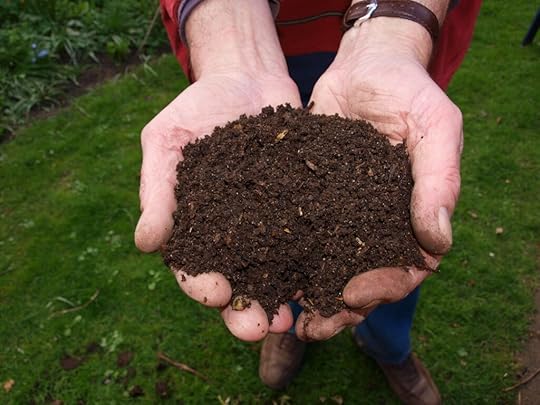 Turn your waste into
Turn your waste into July 31, 2020
Is Love Stronger than Hate?
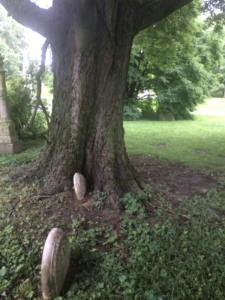
How we collectively answer this will determine whether humanity can survive the current pandemic and any future global catastrophes (remember global warming and the melting polar ice?)
Consider the general orderliness of highway traffic — people going about their lives, filling their tanks, trying to earn a living, driving kids to wherever, peacefully demonstrating in support of black lives, wearing masks. These and similar acts indicate love. These and more occur throughout the world, revealing a humanity that knows we survive by working together.
The anti-maskers and rioters seem motivated by the fear of cooperating with people they don’t like. Their public actions don’t show love but lack thereof.



